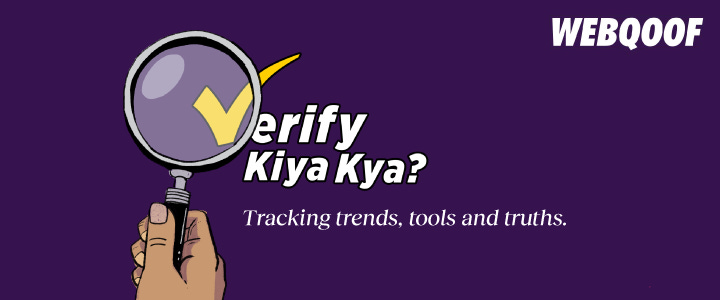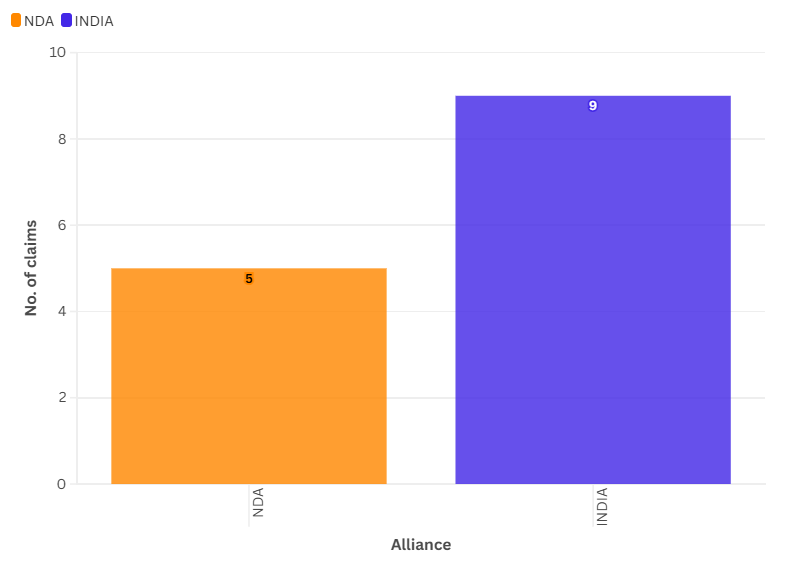Taking Stock: How Deep Did Disinformation Cut in Maharashtra, Jharkhand Polls?
Posing a serious threat to democracy, AI misuse/manipulation has the potential to impact voter behaviour.
Dear Reader,
On 19 November, a day before the Maharashtra elections, the BJP's official X handle shared four audio clips alleging 'poll fraud.' These clips, which supposedly featured conversations between NCP leader Supriya Sule and Congress Maharashtra President Nana Patole, among others, were shared with the claim that the Opposition leaders were misusing money to influence elections.
The timing of the audio clips — and the claim — could not have been more suspicious. It took multiple tools and collaboration from organisations like the Misinformation Combat Alliance’s Deepfakes Analysis Unit to conclude that the clips were NOT REAL — and were likely created using AI.
This incident underscores the increasing worries of fact-checkers regarding AI-generated content, especially in audio and video formats. Posing a serious threat to democracy, AI misuse/manipulation has the potential to impact voter behaviour.
Of course, this wasn't the only instance of mis/disinformation around the recently concluded Maharashtra and Jharkhand elections either. For the parties within the INDIA and NDA blocs, the battle on social media platforms was as fierce as the on-ground campaigning if not more. As online supporters chipped in, several unrelated clips were shared to either boost their party’s momentum or to target opposition leaders.
The Quint’s WebQoof fact-checked around 18 claims related to the Assembly elections — a majority of which were related to Maharashtra. We also identified four common themes of mis/disinformation during the elections: Communal, Targeting Leaders, Manipulated, and Old or Unrelated Content. (Some of the claims were placed under two or more categories due to their nature.)
Targeting Leaders emerged as the most common theme this election season.
Take for instance the video of former Maharashtra chief minister Uddhav Thackeray, claiming that Mughal ruler Aurangzeb was his brother.
Not only was the video clipped, but it also lacked context. The longer version of the viral clip showed Thackeray referring to an Indian soldier named Aurangzeb, who was killed by militants in Jammu and Kashmir in 2018, as his brother.
The second most viral theme was the use of manipulated content to take a dig at prominent leaders. This included posting edited and clipped videos as well as images. For instance, a video of Union Home Minister Amit Shah was shared with a claim that he disrespected former Jharkhand chief ministers Champai Soren and Babulal Marandi during a public event.
It turned out that the video was edited to clip the portion where Shah was seen referring to the leaders as "Champai Ji" and "Babulal Ji."
Shifting focus from the themes, which alliance faced the most targeting? Team WebQoof found that the INDIA bloc was targeted the most, with around 9 claims, with the NDA coming in second with around 5 claims.
Further, which type of content was used the most? At least 64.7 percent of the total claims were in the video format, with images coming second with approximately 29 percent. The total number of images that we debunked related to the elections was about 5.
The Most Worrying Trend
Unlike previous elections, the Maharashtra and Jharkhand Assembly polls saw AI-manipulated content to spin false narratives — a deeply concerning trend to have emerged this election cycle. In fact, the AI-generated audio clips shared by the BJP handle a day before polling on 20 November contradicted Prime Minister Narendra Modi’s recent statements over the use of deepfakes.
Before the 2024 Lok Sabha Elections, Team WebQoof had published a deep dive on how deepfakes could be weaponised to target leaders and political opponents. Even as the public can debate the impact of this worrying trend, it should serve as a wake-up call for politicians to implement regulations addressing these concerns.
This newsletter was written by The Quint's fact-checking team, WebQoof, who work tirelessly to ensure readers receive only the truth. This is even more important during elections as a well-informed electorate is critical to a healthy democracy. This is the first in our series of monthly newsletters, where we will look beyond the regular fact-checks and uncover the trends and false narratives we see in the space of mis/disinformation and simplify them for you, our readers.
Your support will allow us to continue this essential work. BECOMING A MEMBER* today!
See you next month!
Team WebQoof
*Already a member of The Quint? What a star! Your support empowers us to question everything.
Want us to cover a story? Write to us at editor@thequint.com or reply to this email.








